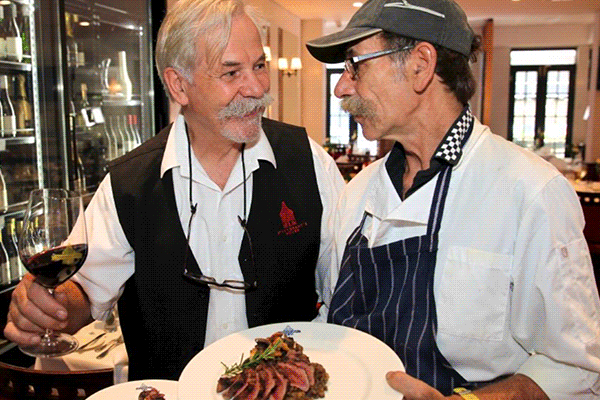Stuyvesant’s House owner Rudi Dietz reflects on retirement and industry woes

With the 24 June auction of Stuyvesant’s House drawing near, long-time owner Rudi Dietz is contemplating retirement while taking aim at what he sees as the failings of the hospitality industry’s leadership. He spoke with Good Food this week.
Dietz, well-known for his forthright style, is grappling with a staff shortage during lunch service at his Crows Nest institution when he briefly cuts off a conversation to take a phone call. “Please don’t ask me how I am, what do you want?” he tells the caller. His brusque manner is no act—many diners have encountered it firsthand, as reflected in numerous reviews.
While his directness remains undiluted, Dietz is most animated when discussing the systemic challenges facing hospitality. He is frustrated with government and industry bodies, accusing them of failing to attract skilled talent and missing crucial tourism opportunities. “Australia is a beautiful place,” he says—recalling the same sun-soaked posters that lured him from Germany in the late 1960s.
Dietz arrived in Australia in 1970 and took over Stuyvesant’s House in 1973. Originally a Dutch restaurant, it became a landmark under his stewardship, with brother Max joining him in service. The menu evolved to feature a wide selection of German and European dishes, including schweinshaxe, schnitzels, duck with red cabbage and spaetzle, along with a Dutch-Indonesian steak and nasi goreng pairing.
A vast wine list, often likened to an auction catalogue, and a renowned cellar—rescued from a fire in 2015—form part of the restaurant’s enduring lore.
Dietz, who has helmed the venue for more than five decades, has many anecdotes: from chasing a famous English actor into the car park over an unpaid bill to phoning a reviewer who mentioned the restaurant’s décor. “Why lie, why pretend,” he says. “Sometimes I lose it.”
“This has been my life, I’ve put my work first,” he told Good Food, acknowledging the sacrifices that come with hospitality’s demanding hours. A recent visit from a long-time customer left him emotional. “He was here with his children, the little boy looked just like he did when he came here 45 years ago.”
The restaurant’s future will be decided at auction, with Dietz unsure of the timeline for his final service. “I don’t know yet, but my son is going to come in from America for it.” Retirement, he says, will involve travel—and becoming a customer in other people’s restaurants.
Jonathan Jackson, 11th June 2025







